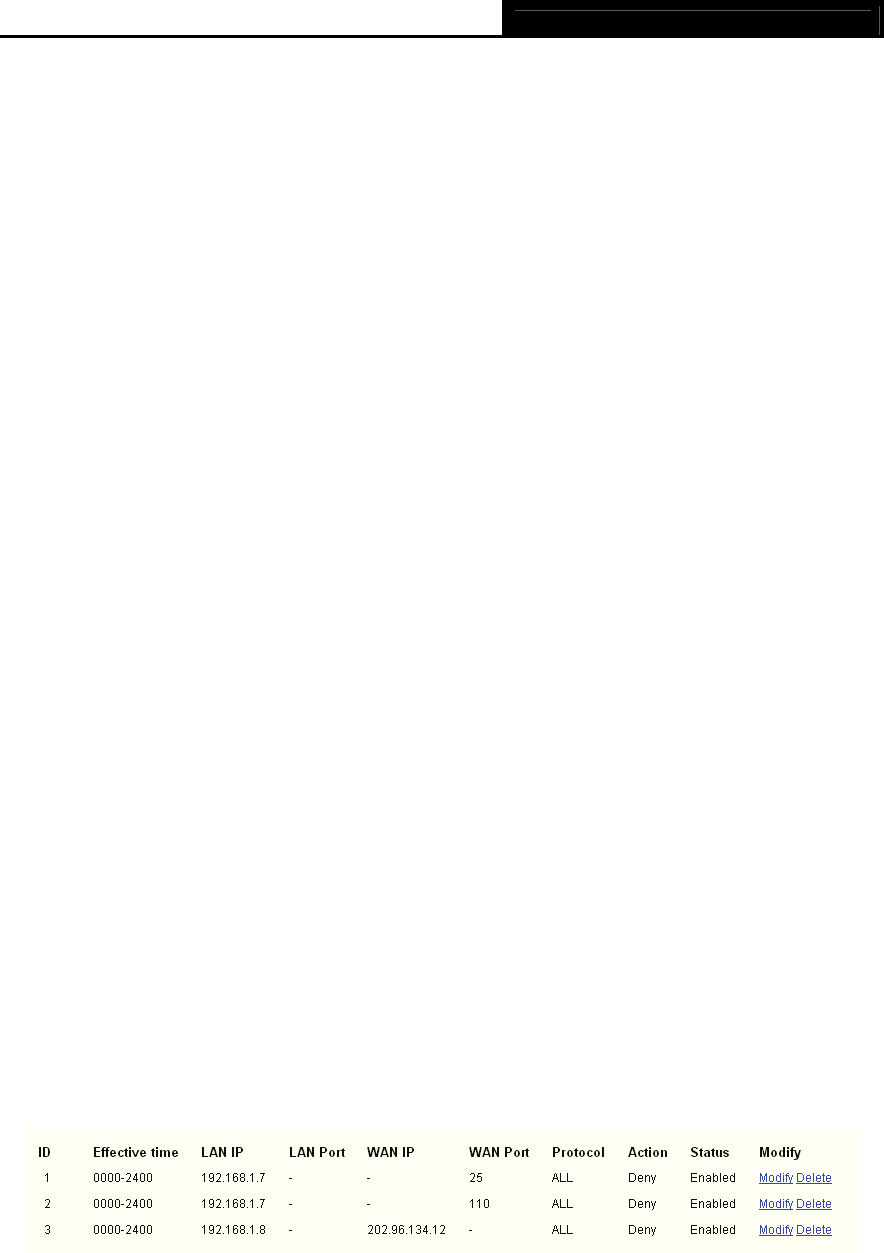
TL-WR641G 108M Wireless Router User Guide
- 47 -
4. WAN IP Address - Enter a WAN IP Address or a range of WAN IP Addresses in the field,
in dotted-decimal notation format. For example, 61.145.238.6 – 61.145.238.47. Keep the
field open, which means all WAN IP Addresses have been put into the field.
5. WAN Port - Enter a WAN Port or a range of WAN Ports in the field. For example, 25 – 110.
Keep the field open, which means all WAN Ports have been put into the field.
6. Protocol - Select which protocol is to be used, either TCP, UDP, or All (all protocols
supported by the router).
7. Action - Select either Allow or Deny through the router.
8. Status - Select Enabled or Disabled for this entry on the Status pull-down list.
9. Click the Save button to save this entry.
To modify or delete an existing entry:
1. Click the Modify in the entry you want to modify. If you want to delete the entry, click the
Delete.
2. Modify the information.
3. Click the Save button.
Click the Enable All button to make all entries enabled
Click the Disabled All button to make all entries disabled.
Click the Delete All button to delete all entries
You can change the entry’s order as desired. Fore entries are before hind entries. Enter the ID
number in the first box you want to move and another ID number in second box you want to
move to, and then click the Move button to change the entry’s order.
Click the Next button to the next page and click the Previous button to return to the previous
page.
For example: If you desire to block E-mail received and sent by the IP Address 192.168.1.7 on
your local network, and to make the PC with IP Address 192.168.1.8 unable to visit the website
of IP Address 202.96.134.12, while other PC(s) have no limit you should specify the following IP
address filtering list:
Figure 4-39
4.8.3 Domain Filtering
The Domain Filtering page (shown in Figure 4-40) allows you to control access to certain
websites on the Internet by specifying their domains or key words.


















